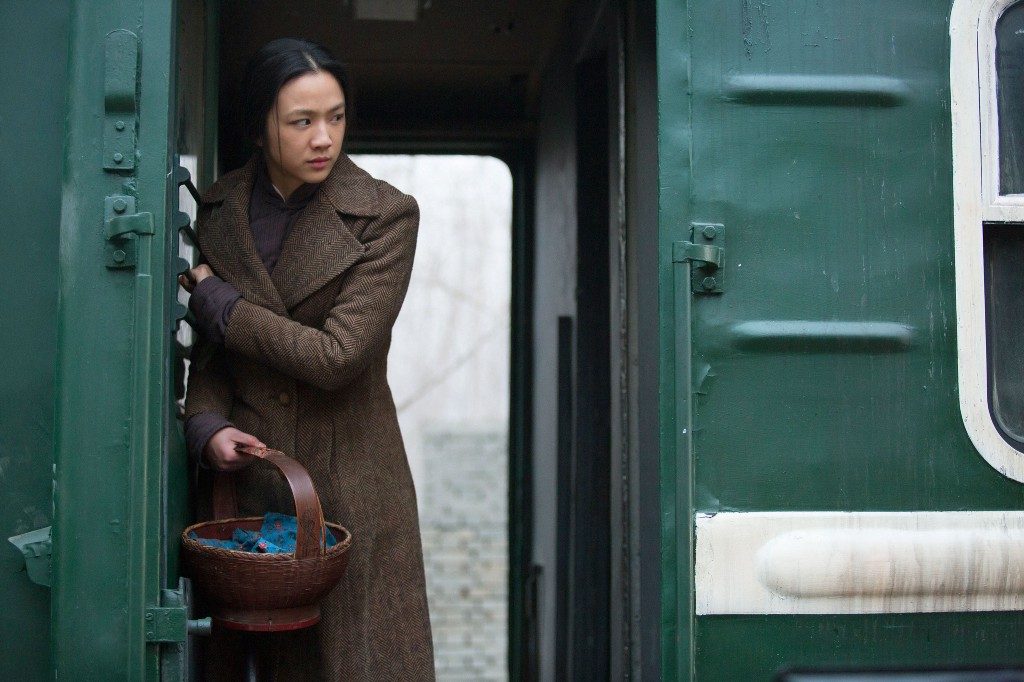Mabel Cheung is an award-winning director and producer. Her debut feature, “The Illegal Immigrant” (1985), won her the Best Director Prize at the Hong Kong Film Awards and a Special Jury Award at the 30th Asia Pacific Film Festival. “An Autumn’s Tale” (1987) signaled another high point in her career, winning four Hong Kong Film Awards, including Best Picture and Best Screenplay. “The Soong Sisters” (1997) won three Taiwan Golden Horse Awards and six Hong Kong Film Awards. Other films she has made — “City of Glass” (1998), “Beijing Rocks” (2001) and “Traces of a Dragon” (2003) — have been selected by film festivals worldwide.
Cheung has also produced many popular films, including “Painted Faces” (1998), “Now You See Love, Now You Don’t” (1992) and “The Moon Warriors” (1993). In 2005 she directed “Song of Light and Shadows,” a stage musical in commemoration of the 100th anniversary of Chinese cinema, which was awarded the Gold Prize for Best Performance in China. In 2010 she produced the motion picture “Echoes of the Rainbow,” winner of the Crystal Bear award at the 60th Berlin International Film Festival, Generation Section, as well as four Hong Kong film awards. (Press materials)
“A Tale of Three Cities” will premiere at the 2015 BFI London Film Festival on October 15.
W&H: Please give us your description of the film playing.
MC: It is a love story between a spy and an opium smuggler who are none other than Jackie Chan’s parents. It is also a tribute to our parents’ generation, who escaped from city to city in search of their loved ones and in search of a place to build a better home. The story is set during the turbulent war years in China in the ’40s and ‘50s.
W&H: What drew you to this story?
MC: I have always wanted to make a film about my parents’ generation, which tried every way to escape from the deadly shadow of war and finally settled down in Hong Kong in the ’50s to build a home from nothing. Arguably, they are the first generation of Hong Kong people to turn this remote island into a modern city. I admire their courage, their perseverance, their belief in love and their undying faith in the future. But being a very bad daughter, I never really took time to sit down and listen to my mother’s story, and she passed away in 2003. I became very guilty and began to spend a lot of time with older people. I listened carefully to their stories. And one of them was Fang Dao-lung, Jackie Chan’s father. In time, I discovered that he had led an amazing life and had a super-strong character, which can represent people of his time very well.
W&H: What was the biggest challenge in making the film?
MC: As the title suggests, we had to film in various cities, and that made the budget very high. I wanted to shoot in the actual places where the story took place instead of making it in studio sets. It took us 10 years to finally get an investor for the project. But once the money was in place, the shooting went really smoothly, and we managed to finish it within three months. That’s because we had spent a lot of time doing all preparatory work, including researching and location hunting.
W&H: What do you want people to think about when they are leaving the theater?
MC: How lucky we are to be living in a relatively peaceful environment, especially when more or less the same fate is befalling the people of Syria and other Middle Eastern countries. And how love can give us hope and help us to face all kinds of difficulties.
W&H: What advice do you have for other female directors?
MC: Be yourself. Forget about whether you are male or female and just work hard to become a director who truly knows her craft and the direction she wants the film to go. People respect a director for her work regardless of her gender.
W&H: What’s the biggest misconception about you and your work?
MC: That I’m a hopeless romantic. I consider myself a realistic person who usually finds stories from real life people.
W&H: How did you get your film funded? Share some insights into how you got the film made.
MC: It took me ten years to find funding for my film. Eventually Nansun Shi, a very famous producer in Asia, took interest in the story. She helped me find funding in China. It was Huayi Brothers, a major film company in China, which finally invested in the film.
W&H: Name your favorite woman-directed film and why.
MC: “The Piano,” directed by Jane Campion. I like the powerful story, the excellent performances (especially that by the little girl, Anna Paquin), the beautiful cinematography and the vision of the film.







